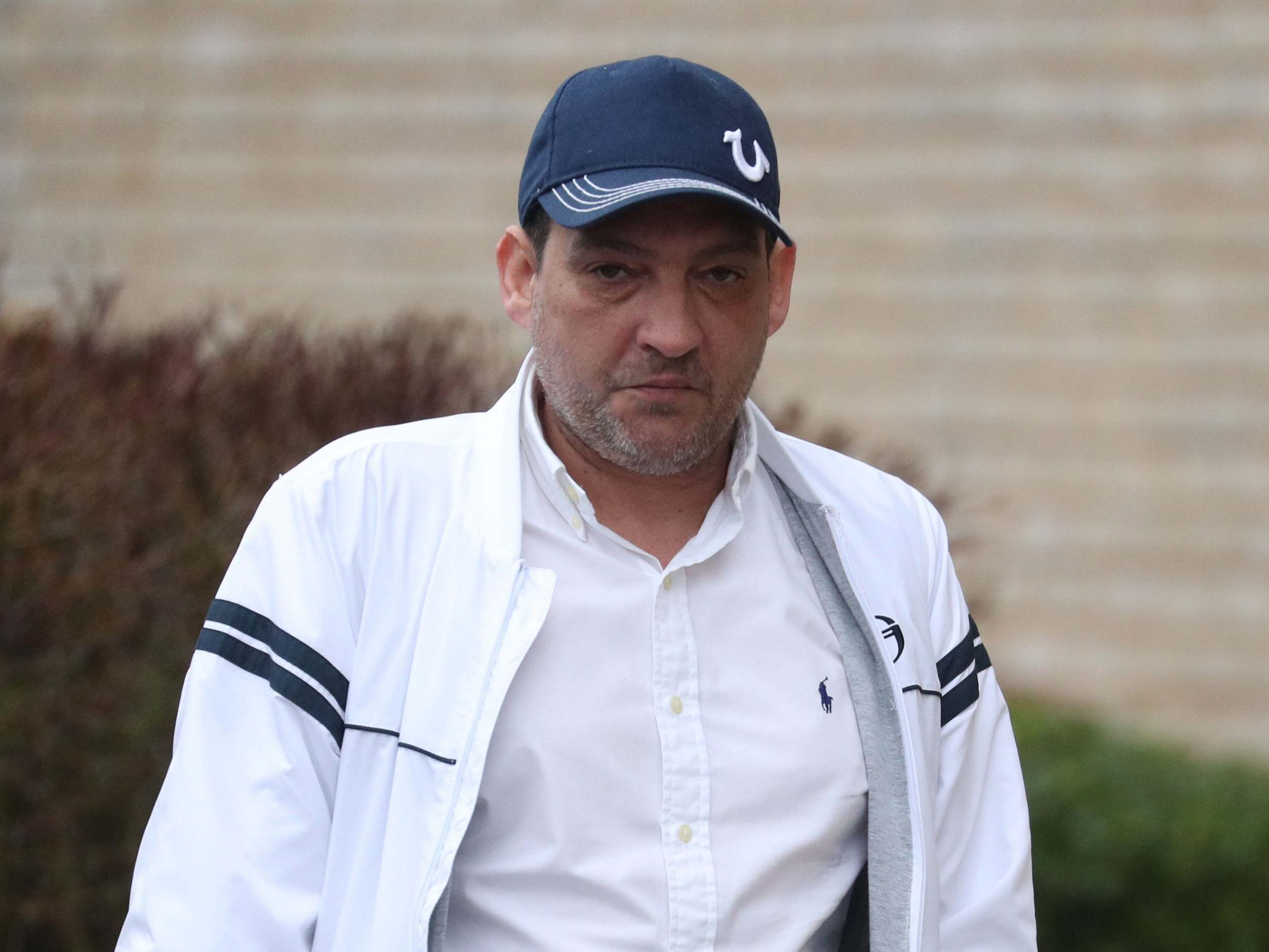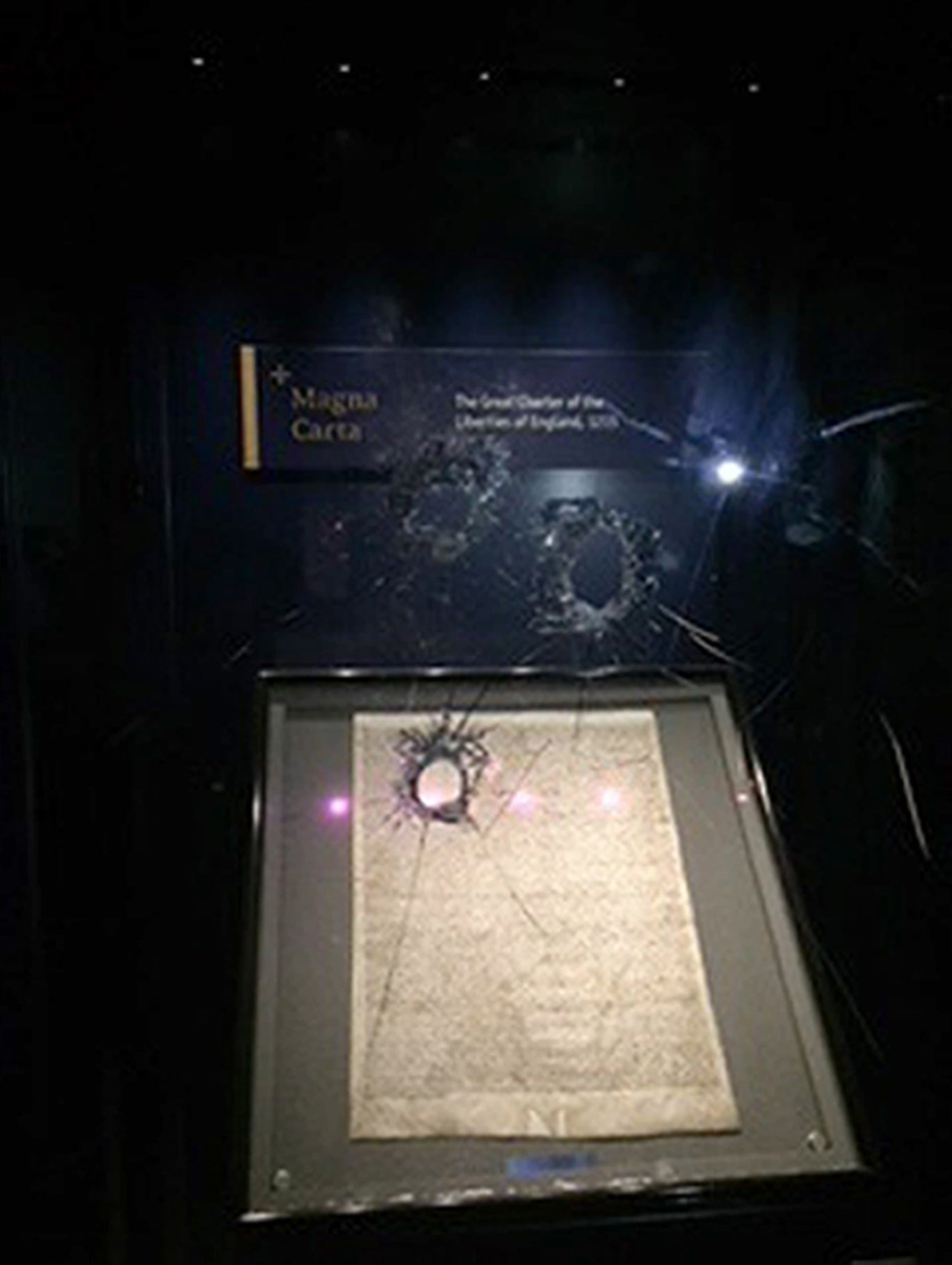Man jailed for trying to steal Magna Carta from Salisbury cathedral
Mark Royden, 47, believed the ‘priceless’ document to be a fake

A 47-year-old man has been jailed for four years for attempting to steal a “priceless” version of Magna Carta which he believed was a fake.
Mark Royden, from Canterbury, Kent, was convicted of using a hammer to smash the security case holding the historic document at Salisbury Cathedral on October 25, 2018.
He was found guilty at Salisbury Crown Court of attempted theft of Magna Carta and criminal damage to the display case costing £14,466 to repair.
The trial heard that Royden scoped the cathedral for a route avoiding CCTV cameras and came equipped with a hammer, gloves and safety goggles.
Before smashing the security case in the Chapter House holding the artefact, Royden turned a CCTV camera in a failed bid to avoid being recorded by it and set off a fire alarm as a distraction, the court heard.
After his attack on the case, he was pursued by “good-spirited” members of the public including a pair of American tourists, cathedral staff and stone masons who detained him in a works yard outside.
Sentencing Royden, Judge Richard Parkes QC said: “Magna Carta is a document of huge importance to our country and many other countries that share our democratic traditions.”
He added: “This was a determined attempt on a document of huge historical importance.”
The judge praised the “courageous” acts of visitors and staff who apprehended Royden including tourists Matthew and Alexis Delcambre from New Iberia, Louisiana, USA.
He called on the High Sheriff of Wiltshire, Major General Ashley Truluck, who attended the hearing, to award Mr Delcambre an award of £1,000 and £500 to cathedral employee Gary Price.
He said: “This is a story of a few good people acting alertly and bravely and they deserve our sincere thanks.”
Rob Welling, prosecuting, said that Royden made an “odd prepared statement” to police during which he “doubted the authenticity” of Magna Carta.
His comments included: “You can’t talk to me about the holy grail so to speak, if you find a bag on the floor which says cocaine on it, you would have to test that bag forensically, as for your holy grail, you would need a carbon test and a trace element test.”

Mr Welling said that Royden has 23 previous convictions covering 51 offences including theft and criminal damage including against items “of the establishment”.
These included spray painting the doors of Exeter police station, attacking council benches with an angle-grinder and putting a concrete block through the windows of a solicitor’s firm.
Nicholas Cotter, defending, said that a serious car accident in 1991 had “tragically” affected the defendant causing him brain damage and leading him to be subject of a court of protection order over his finances and requiring a carer.
He added: “He has become a pest and a pain, mired in drink and drugs, heroin has been the drug of choice and alcohol has blighted him.
“He is a caring, kind and helpful man and tries to do his best by people but he is blighted by demons.”
He added: “Mr Royden wishes me to advance he couldn’t plead guilty to the offences because there was a Russian flag on the cathedral at some point and he didn’t feel he could advance a guilty plea because that may implicate him as a Russian spy because of Theresa May.”
Salisbury Cathedral’s version of Magna Carta is one of four that remain in existence from the original 1215 charter.
King John issued Magna Carta after agreeing peace terms with a band of rebel barons and it is now one of the world’s most celebrated legal documents.
It established for the first time that neither monarch nor government was above the law and set out principles of liberty.
The Salisbury copy went back on display three months after the incident with the damaged case being made part of the exhibition telling the document’s history.
PA
